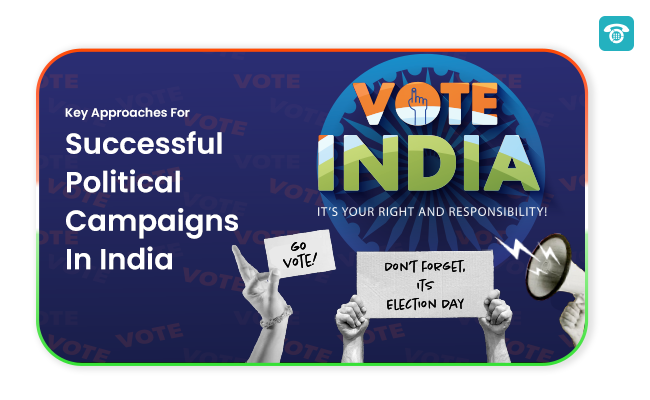Political campaigns in India are complex and dynamic affairs that require detailed planning, calculated execution, and persuasive communication to influence public opinion and win elections.
A complete grasp of local concerns, demography, and socio-cultural elements is essential for successful political campaigns in India. Political landscapes in India differ greatly between regions, so do their political campaign strategies.
Effective political campaigns or political SMS campaigns start long before official declarations are made. The key to victory is carefully organising and preparing for every stage of the electoral procedure.
To effectively tailor political campaign strategies for political parties, it is necessary to evaluate the following key factors:
- Demographics
- Voter preferences
- Historical voting patterns
- Prevailing issues
Learn How Tools Can Be Integrated Into Political Campaign Strategies In India
a) Leveraging WhatsApp API for Outreach
1. Direct Messaging
Political parties can communicate with voters directly through the WhatsApp API, enabling more individualised outreach. Parties have the ability to text constituents’ smartphones with updates on their political campaigns, invitations to events, and policy messaging.
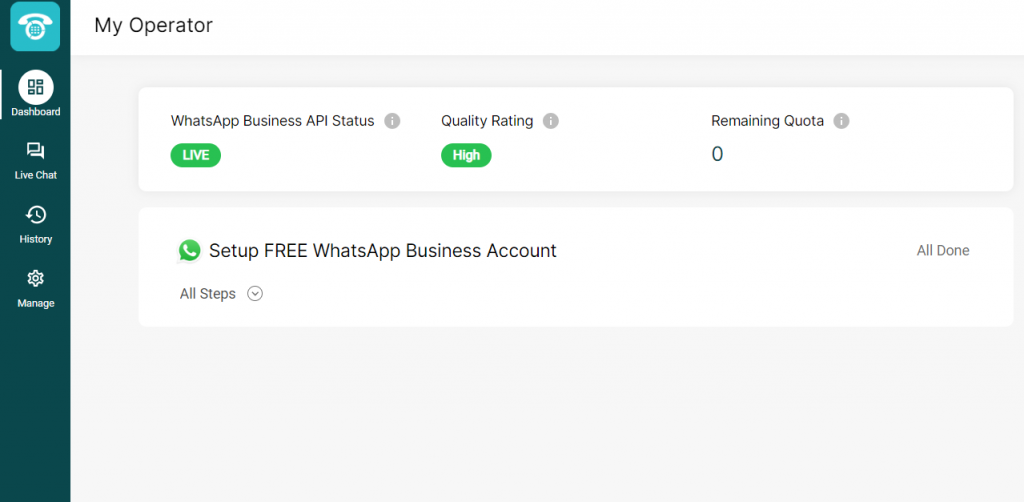
2. Broadcast Lists
Through the creation of broadcast lists, political parties can effectively and extensively spread their political campaign messages to a big audience at the same time. To prevent spamming and guarantee message delivery, it is imperative to abide by WhatsApp platform‘s rules and guidelines.
3. Engaging Campaign
WhatsApp for business‘s interactive features, like group chats, polls, and surveys, let political parties connect with voters in real-time. The people feel more engaged and involved as a result, strengthening their bond with the party.
MyOperator featured on CNBC Awaaz
b) Voter Engagement Through The Use Of IVR Systems
1. Automated Call Campaigns
Voters can receive pre-recorded political campaign messages via automated phone campaigns using Interactive Voice Response (IVR) devices. These communications may consist of candidate speeches, campaign updates, and reminders regarding elections and rallies.
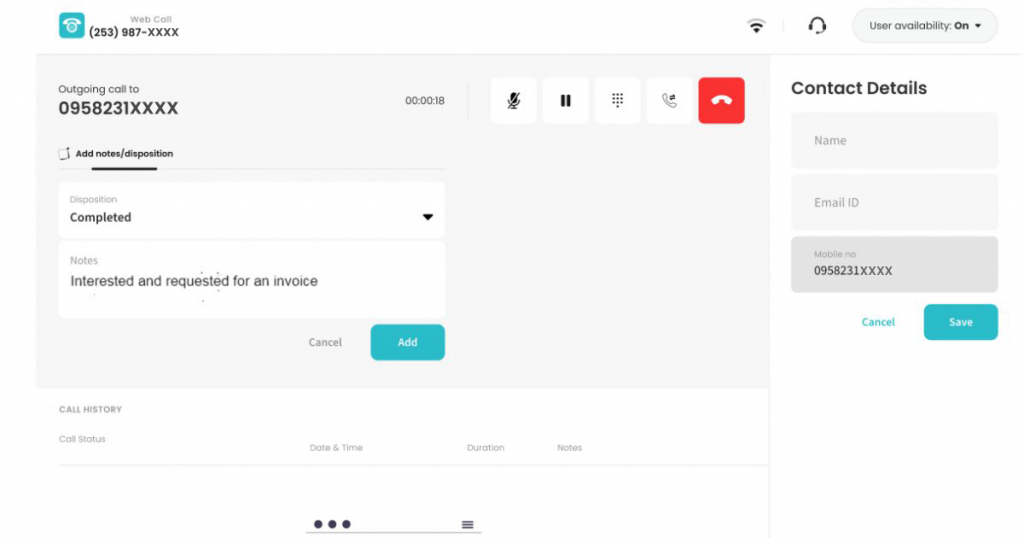
Read More: How AAP scaled their political campaigns through cloud telephony
2. Feedback Mechanism
By answering prompts, voters can use IVR systems as a feedback mechanism to voice their thoughts and concerns. Political parties can use this insightful input to better target their messaging and tactics in order to appeal to voters.
3. Language Customisation
IVR systems can be personalised to speak with voters in their preferred language in a multilingual and dialectically diverse nation like India, guaranteeing integration and efficient communication between different regions.
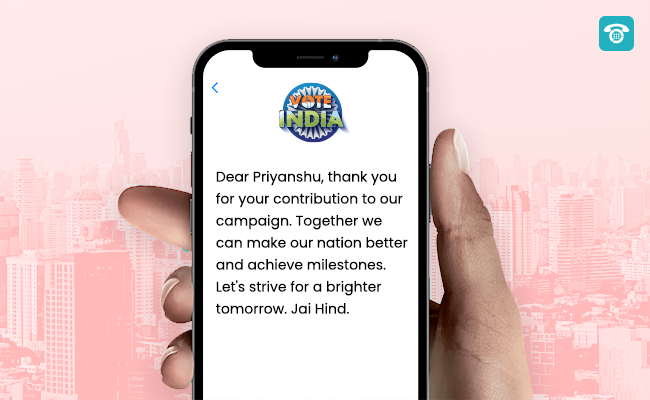
c) Improve Accessibility With Toll-Free Numbers
1. Accessible Communication
Voters can interact with political parties conveniently and affordably by calling toll free numbers. By using these numbers, voters can get information, address grievances, or offer input, promoting accessibility and transparency in the democratic process.
2. Campaign Hotlines
Establishing campaign hotlines with toll-free numbers in India enables voters to speak with party representatives directly for support pledges, questions, or assistance. This personal touch has the potential to greatly increase voter loyalty and pleasure.
3. Data Collection
Toll-free numbers can also be used to collect crucial voter information like demographics, preferences, and comments. Analysis of this data can help to improve budget allocation and guide focused campaign plans.
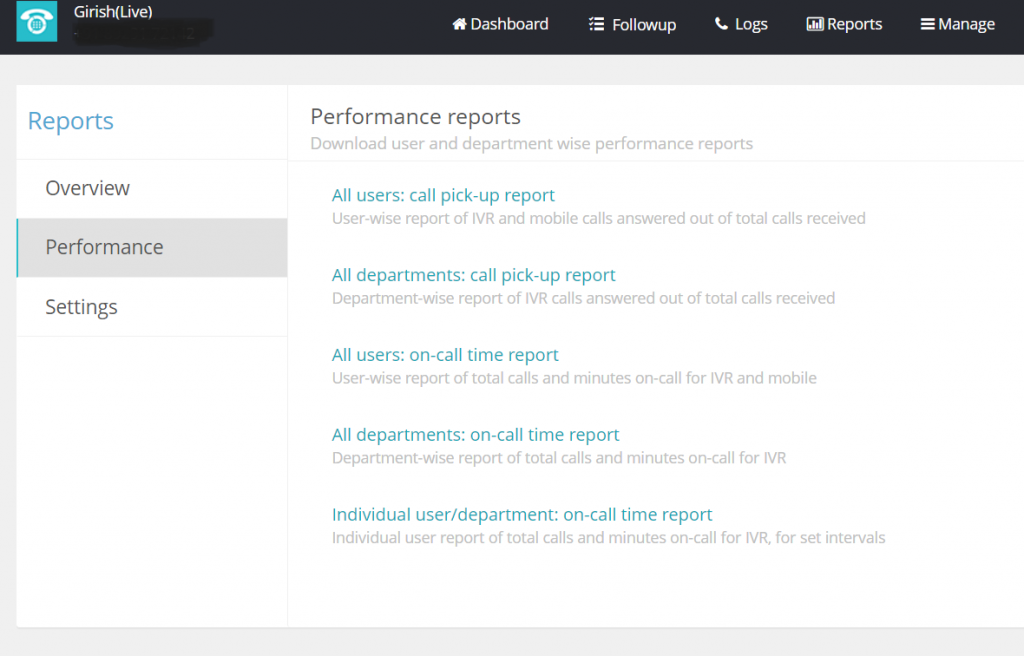
d) Harnessing Cloud Contact Centers For Scalability
1. Scalable Communication
Political parties can effectively manage a high volume of calls and Political SMS campaigns mainly due to the scalability of cloud contact centers, particularly during busy campaign seasons. By guaranteeing that no voter question or comment is unaddressed, this raises voter satisfaction and involvement.
2. Multi-Channel Integration
Voice, SMS, email, and social media are just a few of the modes of communication that cloud contact center solutions may combine into one portal. By facilitating smooth engagement with voters through a variety of touchpoints, this omnichannel strategy maximises the effect and reach of campaigns.
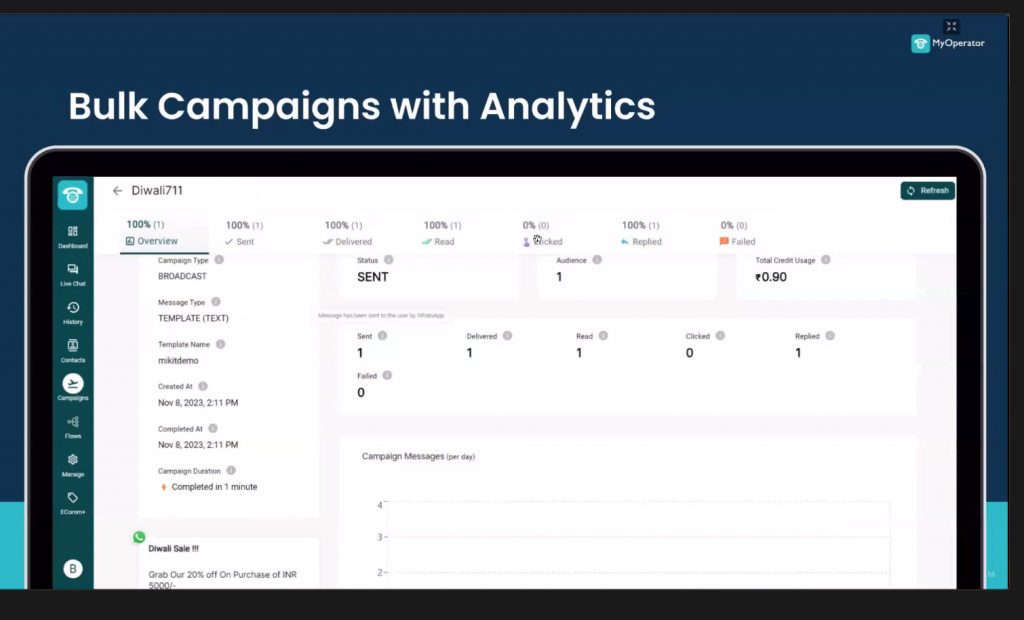
3. Analytics and Insights
Political parties may monitor campaign effectiveness, gauge voter sentiment, and pinpoint areas for improvement in real time with the help of cloud based contact centers‘ advanced analytics and reporting features. This data-driven approach empowers parties to make informed decisions and optimise their political campaign strategies for success.
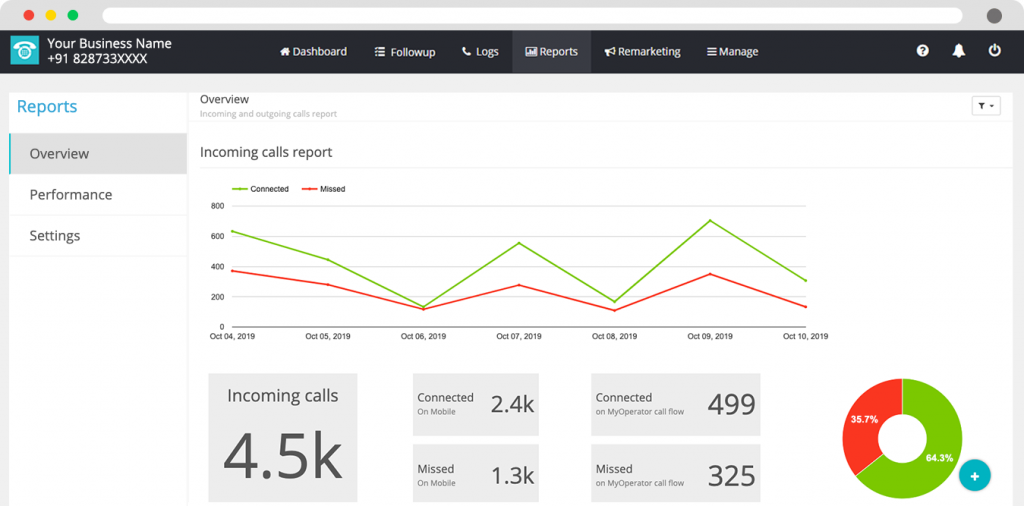
Embracing Technological Innovations For Political Campaign
Technological advancements have transformed political campaigning in India in recent times, providing fresh political campaign strategies for voter reach and engagement. Political parties for their campaigns in India as well as candidates are increasingly harnessing the power of data analytics, artificial intelligence, and machine learning to identify:
- Voter preferences
- Micro-target specific demographics
- Optimise political campaign strategies
Furthermore, the widespread use of mobile devices has made it easier for political SMS campaigns and call blast initiatives to gain traction, allowing for large-scale direct voter communication.
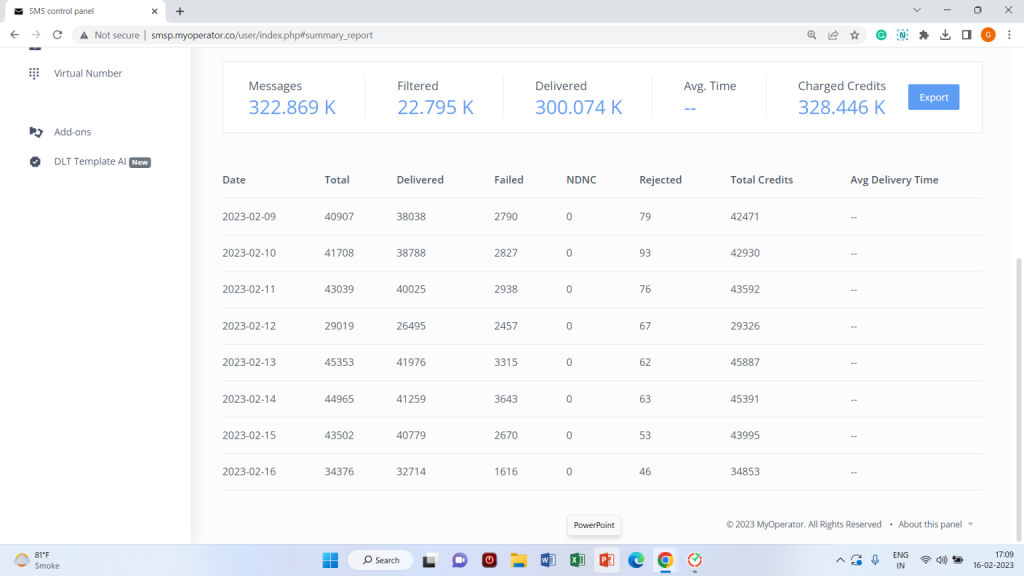
Also, the open and free access to political campaign templates has democratised the process of designing and implementing campaigns, giving grassroots movements and smaller parties an equal chance to compete with one another.
Developing a Solid Ground Game
In political campaigns in India, ground-level organising and grassroots mobilisation are extremely important, even though digital communication is also quite important.
Establishing strong party infrastructure, developing local leadership, and fostering connections with influential members of the community are crucial to gaining the confidence and trust of voters.
Factors that can greatly impact the effectiveness of political campaign strategies in India:
- Implementation of a specialised team
- Mobilisation campaigns
- Volunteer recruitment
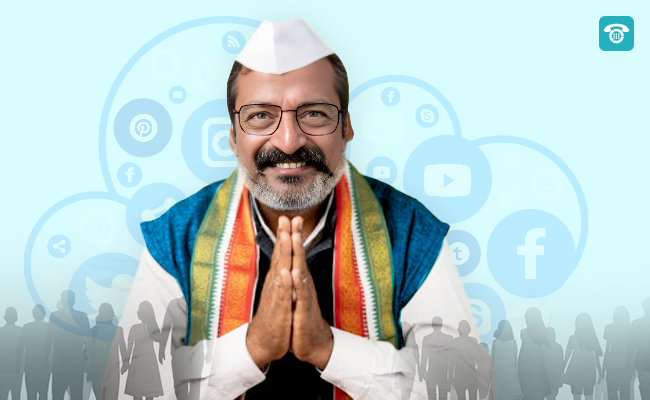
Wrap-Up
Thus, in India, effective political campaign strategies necessitate a comprehensive understanding of the following factors that include:
- Technological know-how
- Creative outreach techniques
- Strategic partnerships
- Strategic planning
- Compelling messaging
- Grassroots mobilisation
Both parties and candidates can improve their chances of winning elections and implement significant change by learning the details of the local political scene, using political campaign templates for free, developing effective campaigns, utilising a variety of outreach channels, adopting technological advancements etc.
Those who seek to win elections will always need to be flexible and creative in their campaign strategies as India’s political and social situation continues to change.

